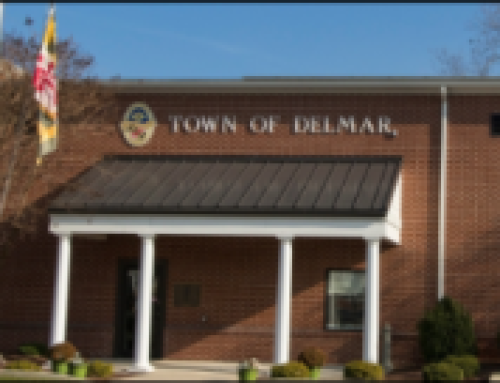A Laurel landlord came before Mayor and Council recently to express concerns about the unusually high property tax increase implemented in last year’s town budget. He said he hoped in the future there may be opportunities to bring the taxes down to a more tolerable level.
Jim Larue, who has several rental properties consisting of 18 active rental units, said he feels this is not only hard on landlords who own rental properties, but also homeowners in general. “It’s been hard on a lot of people. We had to raise our rents to all those folks to cover that 30 percent increase,” he said. “But there’s a lot of folks that are homeowners as well. It is quite an impact at one time. I don’t know if things in the future are going to look up, and maybe there will be some change in the other direction. I don’t know whether there’s some things coming that may be able to help out with those taxes.”
Larue went on to say that he is aware that the town’s code department has been active in condemning properties in the town, and he hopes this continues as he is aware of several properties that are in violation of rental ordinances, including multiple families living in single-family homes, congregating crowds making noise at all hours, and cars blocking traffic.
As a landlord, he pointed out that while owners can evict occupants for violation of rental agreements, there are laws that must be followed including allowing sufficient opportunity for them to relocate. He said while landlords can give a tenant a set period of time to leave a property, there are legal issues that must be addressed which could make that a more prolonged period of time. “We have to give tenants a fair shake,” he said.
In Delaware, landlords and tenants are both protected by eviction laws. While a landlord can evict a tenant for rental violations, there is a process that must be followed. In the case of failure to pay rent, the landlord can give a tenant five days to bring the rent current before proceeding with eviction.
In the event of rental violations, the landlord gives seven days’ notice of eviction proceedings. During the wait period, the tenant can either move out or correct the problem. In either case, once the landlord initiates eviction proceedings, the case goes before a court and the landlord must show due cause to move forward with the eviction. The legal proceedings can be costly for both parties, especially the landlord, who not only pays for the costs associated with making a legal case, but is at the same time losing rental income and in some cases having to pay for property damages.
According to Delaware law, month to month rental agreements require the landlord to serve a 60-day notice that they are terminating the lease. Should the court rule for the landlord and support the eviction, the final step is for a law enforcement officer to carry out the eviction. Landlords are not allowed to evict tenants themselves. The officer will post a notice giving the tenant a short time (usually 24 hours) to leave the property.
Before closing out his remarks before council, Larue offered praise for the town’s new trash collection service. “The new service is day and night to what we had experienced before with the other contractors. As citizens here, we’re thankful for that change, so yeah, very nice people who do it,” he said.
Laurel Mayor John Shwed thanked Larue for his comments and complimented him as a Laurel landlord. “Mr. LaRue, we know from your reputation that you’re one of the very responsible landlords in our community. We appreciate that,” Shwed said.
The mayor went on to address Larue’s concerns about the 30 percent tax increase. “I want to address the tax issue for you,” Shwed said. “This year, in the current budget, we were able to keep things level. I think. Except for a couple of utility fees that had to be adjusted. We lowered trash fees. Everything else stayed the same. We did not add any additional increases on top of that. Hopefully, as we get new developments, it will help us to, again, moderate what we have to do in the future in terms of tax.”
The mayor said on behalf of the rest of the council, the 30 percent tax increase was “a very painful thing for us to do.” He went on to say, “Let me tell you, as we were sitting around this table, anybody that knows us, knows we really didn’t want to do that. We didn’t have any choices. We were faced with a community that has a lot of issues, especially in the area of law enforcement and the police chief needs some additional resources. We are not like the Rehoboth Beach. We don’t have parking meters that bring in millions of dollars. Property tax was about the only source that we had. So, again, we hear you. We share your pain.”



